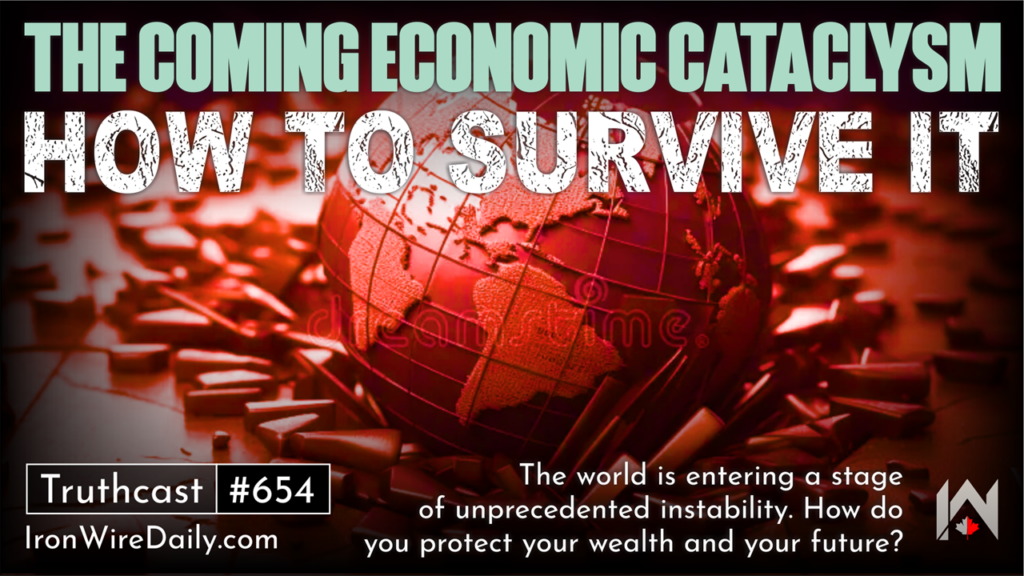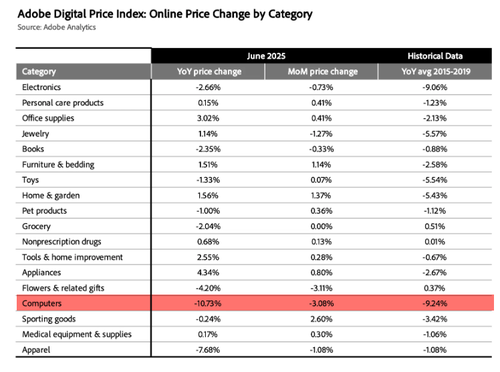Everything You Know About Heart Disease and Diabetes is Wrong |
Ivor Cummins
Diabetes. Heart Disease. Cholesterol. Your doctor will run blood tests, and frown over your results. Then they’ll put on you on medication to treat it. Unfortunately virtually everything doctors have been taught about the cause of these conditions is wrong.…
(0:00 - 1:18) Diabetes. Heart disease. Cholesterol. Your doctor will run blood tests and frown over your results. Then they'll put you on medication to treat it. Unfortunately, everything doctors have been taught about the cause of these conditions is wrong. Statins used to treat high cholesterol are one of the most commonly prescribed drugs today, despite the fact that one of the listed side effects is an increased risk of diabetes. Clearly, drugs are not the answer. Ivor Cummins, who for many years now has been releasing very informative videos on social media platforms and at his website thefatemperor.com, has interviewed some of the top experts in the world on these subjects. Not the experts that are promoted by pharmaceutical companies to market their products, but the real experts. Doctors and scientists who have nothing to gain from telling you the truth. And the good news is, there are simple things you can do to dramatically reduce your risk of heart disease and even reverse type 2 diabetes, as another guest on my show, Dr. Paul Marik, co-founder of the frontline critical COVID care alliance, did not long ago, after 20 years as a type 2 diabetic. (1:26 - 1:30) Ivor, it's a pleasure to have you back on the show. Great stuff, Will. Delighted to be back. (1:31 - 2:48) So the last time we did an interview, it had nothing to do with health. We were talking about the globalist agenda, which you've also delved into at least as deeply as I have. But something that you have gone into even deeper than I have are things like diabetes, heart disease, the real causes of them. I want to talk about that today. And later on, we're going to get into a little bit of talking about mental resilience, mental health. But let's start with all of this stuff that people think they know about heart disease and diabetes and how it's just about all wrong. I'm just going to let you talk because you've interviewed many of the real experts on this. Yeah. I mean, back in 2015, I interviewed Dr. Joseph Kraft when he was 93 years old, and he did 15,000 insulin assays, full five hour insulin measurements after people drank a hundred gram glucose drink. And he got incredible data. That was just one example. But what he found out was what we are aware of now, that even back in the eighties, type 2 diabetes was massively higher prevalence than people realized because they only call you a type 2 diabetic when your blood sugars go above 6.5 millimole or I think it's 125 in America milligrams. (2:49 - 5:09) But he was finding if you measure insulin and he published a paper, the earliest laboratory diagnosis of diabetes, which uses his post glucose drink insulin measurements, and that actually catches way more people than the glucose. So by the time your glucose has gone off the track, you know, you've been diabetic for 10 to 20 years. Yeah. Yeah. So he discovered this was huge and he did a little bit of work looking at cholesterol and he gave up because he just thought it was nonsense. And he was correct on that as well. So if we, if we go and look, well, you're all aspire. If we check out craft because craft says those with cardiac disease, not diagnosed with diabetes are simply undiagnosed. In other words, pretty much all heart disease comes from the vascular inflammatory condition of, you know, hyperinsulinemia, insulin resistance. And that's pretty much most or nearly all of us. So that was the root cause. And we've discovered that's largely true, but one of the greatest studies was 2015 Euro aspire. And they went and they got around 7,000 people across 24 countries of Europe, uh, ages 18 to 80 who were cardiac cases. So they looked across all the ages, all the countries, all the different genetics, and they said, okay, let's look closely at their blood glucose. And what they found was straight away, a third of these guys were type two diabetic on their medical record. Whoa. Okay. So that tells you something. However, they then look closely at their post glucose drink, glucose levels, OGTT or oral glucose tolerance test. Now they didn't even measure insulin. Remember craft said you must measure insulin to catch all the guys. They only measured glucose, but they found another quarter were full-blown type two diabetic undiagnosed and another quarter where high risk for type two diabetes, but, but they were diabetic. They just didn't quite meet the high glucose for the threshold. So in other words, nearly three quarters of all the cardiac victims across Europe, all ages, all countries were type two diabetic and they didn't measure insulin. (5:09 - 6:04) And if they did, they would see, of course, what craft proved that you get way more. So he was correct. Nearly all cardiac disease, you know, vascular atherosclerosis disease, people have underlying diabetes. So that's kind of it. And the cholesterol just to finish with it, we can talk more about cholesterol. Cholesterol is a great proxy or indirect indicator of hyperinsulinemia insulin resistance. So what the whole world did was they got a weak proxy. Um, it's good in some ways, if you look at the lipoproteins, you know, the ApoB and ApoA1 and the advanced cholesterol, that's a pretty good proxy for insulin resistance, but the old cholesterol is a weak one. So the whole world has been running around looking at a kind of a reflection, a weak reflection of the real root cause. (6:04 - 7:18) And the reason they will never leave that is because there's billions and billions of dollars in cholesterol and pretty much jack in insulin. Right. And they doctors, you go to your doctor, you get these tests that comes back with high LDL. They put you on statins. And the thing that just blows me away is if you go, when you look at the information on statins, the manufacturers will tell you one possible side effect is an increased risk of diabetes. Yeah. And it does because, well, it's complex, but it's connected to the insulin system. And if you screw the cholesterol system, you indirectly promote higher insulin and there you go. But the really funny thing about the statins, I've been in the statin wars for many years, and it's quite funny. A British medical journal, a paper was published in 2016. And for the first time, really a team of doctors and analysts looked at all of the, or a whole selection of statin trials that were declared to be really successful. And they said, well, we wonder what's the life extension for the average person with these drugs. (7:19 - 9:40) You'd think someone would have asked it earlier. How much longer life can you expect for taking these drugs for three to five years? And they found out through using a graphical analysis that on average, I mean, some people might get an extension on average, it was three to four days of extra life over around five years. Now, you know, I know that's zero engineer and statistically that is meaningless, but meaningless. Yes. And it was from the pharmaceutical company's own trials where they did run in periods and they took out loads of patients that were not ideal for their trials. So it was already biased and it's three or four days. Yes. It is closed. Something else I'd like you to just debunk is there is a misconception that it's only overweight people who are in danger for diabetes. This of course is not true. No, in some ways it's the opposite of true. And in some ways it's kind of true. The way it's kind of true is generally the overweight people generally are more insulin resistant. So they're more at risk of heart disease and type 2 diabetes, of course. But the problem is that many people genetically type 2 diabetes is actually the results you get when your body can't make more fat healthily. You know, it's the, Dr. Ron Rosedale said type 2 diabetes is the price you pay for not being able to get fatter. So what that means is if you look at lipodystrophy people and they've got a genetic condition, they're skinny as rakes. You can see their ribs. They look ripped. Okay. They can't make normal subcutaneous adipose tissue, normal fat. And the fat we have acts as a buffer for insulin and glucose. It's really important. It's an organ that's, you know, really important. So these lipodystrophy guys who are skinny as rakes, they're all type 2 diabetic, all of them. Yes. So on the one hand, you've got fatter people are more likely to be insulin resistant. (9:40 - 9:50) So they're broadly more likely. But the skinny guy or the Indian guy, Indians are famous for not getting fat. They just make a little belly, a little pot. (9:51 - 10:09) They're nearly all diabetic, you know, right? Because they tend to just make visceral fat and a little pot belly. They go, they're diabetic, but they don't create the obesity around their whole body. But they're limited because they tend genetically not to make all body healthy fatness. (10:10 - 14:08) So they're a little bit like little bit like the lipodystrophy guys, but hopefully that explains it. It's very misleading. Waist to height ratio is the best measure. If you're going to look at. Fatness or appearance and risk for insulin resistance, diabetes, waist to height ratio. You measure your waist with your breath out or just normally around the belly button. Honestly, yeah, it's really easy to tuck it in. You measure around the belly button and you get your height to your waist and it should be two to one, which is practically no one in the world today in the West. Well, I, I it's interesting to bring that up a minus 0.43. So I very solidly in the healthy range, but then I've been a bodybuilder my whole life. So I do focus on keeping the fat down. Um, so yeah, it's, it is, it's a, it's an, it's a probably the easiest indicator for anybody to do, but it's not the whole story. You can still have somebody who's got a healthy weights to height ratio that is diabetic and at risk of heart disease. And I've run into these people. I've talked to them where it's, and the real problem of course is diet. But before we get to the diet, I want to talk about the test from the many videos you have on your website that seems to be the most accurate and that's the CAC score. Yeah. So the CAC, I spent many years promoting and I still occasionally do, but it's not a primary part of my job anymore. Uh, but it's just amazing when I originally got from a David Bobbitt, a very wealthy Irish guy who discovered a massive CAC score. And then he discovered what you mentioned that it's the best predictor of death or heart attack than anything else. In fact, it's a better predictor of heart attack mortality than all of the other risk factors put together. And I should jump in and CAC folks stands for the, it measures the calcium in the coronary arteries. Yeah. It's nothing. Why is that important? Because a lot of people are on calcium. What's that got to do with diabetes and heart disease? Yeah. And I got asked many times, you're absolutely right. Uh, well, it's nothing to do with the calcium blood test and the amount of calcium in your blood in a blood test. It's nothing to do with calcium levels in your blood. Zero. Basically the story is when you have the inflammatory or hyperinsulinemic inflammatory disease of atherosclerosis, where your arteries are inflamed, they then develop weaknesses and tears, blood clots, endothelial progenitor cells come in and try and fix the damage. And then it ruptures again a little, and there's another blood clot and you build a hot mess. They're like pustules or boils. And a guy with a lot of cardiac disease has got like hundreds off them all over the arteries. And you never know which one will burst cause a massive clot and kill you. So that's the disease process. Well, the body actually brings in bone making structures to try and shore up these pustules or boils and your body brings in calcium. And ultimately over the years, the more boils you have, the more risk you have, the more disease you have, the more calcified plaques you'll have all over your arteries. And that's what the score shows. It's a high-speed x-ray in a rotating disk. And because your heart's bouncing, you can't x-ray it. I mean, it's just like a Jack in the box, right? But the high-speed x-rays with the algorithm are able to kind of freeze the heart like a strobe and see the calcium. So you can see all your arteries and you can see all the calcium. And that number is your extent of disease to date in your life. And that's why it's a perfect predictor of your risk going forward. Cause it tells you how much disease you have. Big disease, big risk, no brainer. No calcium, very little disease, extremely low risk. That's it. (14:09 - 14:31) Right. So now let's get into diet because fortunately, one thing I have found is today, a lot of people do understand that dietary fat does not necessarily make you fat. That's old news. And that's something that was propagated by the sugar industry. They paid crooked doctors to get behind that. There's a fantastic documentary that was produced here in Canada. (14:33 - 16:28) The name of it will come to me. It's not coming to me right now, but it was an expose of how the sugar industry used exactly the same tactics that the tobacco industry did. Hiring this quack doctor to convince people that dietary fat was making the fat and that sugar was completely harmless. Fortunately today, I think most people know that's wrong, but I don't know if they really understand the degree to which it is wrong because you still have a lot of people who, yeah, okay, they've cut down their sugars and their refined carbohydrates, but they won't eat fat either. When in fact, most fats are good for you. Yeah. Any natural fats at the simplest way to pause it is you remove sugars, refined grains, refined carbohydrates and seed oils, vegetable oils, which means you have to remove most processed food because it's stuffed with that. And if you do that, you will end up by default eating real food, which will have high fat content. The delicious human evolutionary foods, organ meats, fatty steaks, delicious chicken with the skin on, all the delicious real food that's healthy, especially animal foods, which are the most nutrient dense and the best foods, they tend to have relatively quite a lot of fat percentage. So you don't need to worry about trying to stuff more fat in. You'll naturally get loads of healthy fat if you eat all the healthy animal based foods. And if you want to eat broccoli and cauliflower and you know, you want to eat other stuff and put spices on whatever. So I say the simplest thing I say to people is eat your meat and two veg, like the British always says, keep it simple, meat and veg. You know, look, look up an old French cuisine book and like nearly every page is a low carb recipe. You know, it's dog, it's like organ meats, it's rich, but not just low carb, high fat. (16:28 - 18:12) Oh, it is high pass. Yes. And the French, this is just brilliant. The French for decades now, it's shifting the French highs than the British Isles. And I think it was six times lower heart disease. No, it's three times lower than Britain. And they were eating vastly more fat. And on top of that, the Perigord region in France was six times lower than England. And they're the region that eat way more fat than the rest of France. I mean, it's like, it's in our face. It's in our face. Yes. And it's the problem for us is the manufactured foods diet. And let's, let's, I want to clarify something here from my own knowledge base. When we talk about diabetes, we talk about heart disease. All of these are simply symptoms and what's better known as chronic inflammatory syndrome, that the body is in a constant state of inflammation because of all the crap that's being put into it. And this is causing a problem with the insulin. And that has to do with something called the insulin leptin cycle. So what happens is, is when you take in sugars, your body has to control those because high blood sugar can be toxic. Your body can't have really high blood sugar. And so you release insulin to lower the blood sugar. That's normal, supposed to happen. Okay. But then what's supposed to happen is when you eat, you're going to get, yeah, you're going to get that insulin spike, possibly depending on what you ate and when there are ways to avoid the insulin spike. But then what has to happen is as soon as you start getting fat stored in your fat cells, they're going to release another hormone called leptin, which is going to go to the brain and it's going to give you a satiety signal. And this should not be confused folks with ghrelin, which is the one from your stomach that tells you you're full. Leptin is something different. (18:12 - 18:28) Leptin gives your brain a satiety signal, which says you're full, you've eaten enough, you don't need anything else. Oh, and by the way, you should probably go and do some activity to burn it off. And this is why if you give a normal healthy kid a cookie, he's now bouncing off the walls. (18:28 - 21:20) But if you give a diabetic kid a cookie, he just wants another cookie. And the reason his folks, this is the reason the leptin signal isn't getting through and it's not getting through because insulin and leptin use the same chemoreceptor. So if you have constantly high insulin levels, the leptin can't get through, you're not getting the satiety signal. And your brain is telling you not your stomach, remember, that's ghrelin, that's different. Your brain is telling you you're starving. And if you don't eat, you're gonna starve to death. Even though these people are diabetic, possibly overweight, sometimes even obese. And yet that signal is still there. This is the problem. And the reason, the major reason for this is the manufactured foods diet. Yeah. Absolutely. I remember you're, you're bringing back memories 2012. That was the 12 years ago. Now, when I first researched this deeply and I gave lectures, I focused heavily on insulin, glucagon, and ghrelin, leptin. And I explained what you refer to there, the feedback loops. So tragic that the human machine wasn't, it was designed with great feedback loops that were self-correcting. But when you introduce modern foods, the human machine was never expecting those and never had time to shift over the centuries because they suddenly appeared right. And 150 years ago, which is a blink of the eye. So all of these feedback loops actually get completely dysfunctional as you mentioned, and you get insulin resistance. And that means leptin resistance through the systems. And leptin is, is it a rexigenic or what? It's an appetite controlling hormone, like you say, but the signal gets it all dumbed down. So it's, it, but it's all the modern foods. If you go back to meat, fish, and eggs, and maybe some non-starchy vegetables, go back to an ancestral human diet, literally within a day, your leptin and insulin are falling like a rock. And within days and weeks, your metabolic disease is falling away rapidly. I mean, people don't realize how fast the body begins to recover when you take away the poison. And one last thing I'll just say, well, it's notes. Ultra processed foods are the sugars, refined grains, and seed oils. They are the problem we're talking about. Yes. British medical journal, I think it was three or four years ago. Now they noted that 62 or 64% of all calories consumed in Britain were from ultra processed foods. So when your population 64% of its actual intake is poison, what are you going to see? We're going to see what we see. (21:21 - 21:36) Yes. And you gave a simple rule earlier. I have another simple rule because yes, you can, you can get bogged down in dietary rules and glycemic index, glycemic load, all that stuff. (21:36 - 21:41) You don't need any of that folks. Simple rule. If it comes with a bag or a box, don't eat it. (21:44 - 22:28) Yeah. Now that's an interesting one. I always used to say that, but I added a caveat because I kind of realized for people today who are really busy and sometimes they kind of will benefit from something quick rather than cooking a whole meal. Occasionally it did occur to me that there are a foil trays in certain supermarkets, which have pre-prepared dinners that when you read the label, they really are just dinners like you'd make at home. Yes. Yeah. We make all those TV dinners here in North America and that is an exception. Those TV dinners, typically their meat, their mashed potatoes, their peas, their vegetables, some kind of vegetable, nothing wrong with that. Because you're on processed food. (22:29 - 23:31) Well, yeah. If you read the label, now some of those TV dinners that seem okay could be laden with other crap and sugars to sweeten them. But, but certain ones, if you check the label locally and Tesco, I know they have a series of them that are bona fide fine. And they're the ones I buy and I keep them in the fridge because we have five kids. People often need to grab something quick in our college and life and teenagers. So I keep stocked with those safe, fast foods. And then you're done. Right. And that's a very good point you raised that read the label folks. If it's got sugars and refined grains and seed oils up near the top, you don't want to eat that. But if, if, you know, it might appear way down in the list or it might not even be there at all. That's fine. There's nothing wrong with that. That's, you know, that's actual food. There you are. Real food. So now let's go the other way. Let's talk about the keto diet. (23:33 - 24:59) Ah, well, we wrote a book, eat rich, live long, and keto was big at the time. And the publisher insisted we had to emphasize keto and put it on the cover. Now myself and Dr. Jeffrey Gerber, we were more healthy, low carb, like we said earlier, the French cuisine, the healthy low carb. And we always said, look, if you want to go hard or keto, get into ketosis. What we would do is skip occasional meals, do some fasting, and then you can move in and out of ketosis like our ancestors. But we never really felt it was appropriate to tell everyone to go hardcore keto. Now it may be for many people, certainly for entrenched intractable diabetes, and certainly for some of the cancers. And there's a lot of conditions for hard keto can give benefits. It's amazing at times, but we just thought for a general population, that's a bit fat and insulin resistant average people, let's just do healthy, low carb, not get too extreme, but definitely we advise skipping meals regularly and doing regular fasting, which will give you the keto benefits. So we were trying to find a happy medium without being extreme. But I think in short for me, we, we articulated that in the book quite clearly. Keto is almost like a medical intervention. (24:59 - 29:08) It's fine for nearly all humans, I would say to just do it generally, but we see it more as an intervention for a specific challenge. You know, we just view it that way. And like carnivore, we didn't promote carnivore because we didn't want to look a little extreme or crack quacky, but carnivore has fixed issues in the people where even keto didn't really help them. I mean, this immune reaction to plant world proteins, extreme versions are Michaela Peterson, I interviewed her in Austin in 2017, amazing story. And her father, Jordan Peterson, they need carnivore because they're highly sensitive to plant world proteins that mimic, you know, other elements of their immune system and cause them trouble. I mean, celiac is the cliche classic, right? But carnivore is amazingly powerful, but equally, we don't say to everyone, Hey, you got to go carnivore. But certainly if you've got a challenge that low carbon keto is not addressing, and you've gone through a lot of other options to address those carnivores, the ultimate, pure, healthy diet that eliminates every potential kind of quirk or food problem you have. And if you do it for four to six weeks to let your biome has to adjust the first couple of weeks, you might feel not great. You might have been diarrhea because your biome has to get used to a, you know, a meat only clean diet, but when you adapt, you leave a few weeks, you allow it to level, then reassess the problem you had and say, well, where is it at now? If it's way better, then you have to make the decision. How will I introduce other foods? And I better do it slowly because there's a lag effect. So Michaela Peterson saw this, she went carnivore persisted and her life transformed. And remember she had an ankle and a hip replaced at 17 from autoimmune. Like, so that's a serious she was and depression. So she amazingly fixed her problem with carnivore, but she discovered if I reintroduce a food, I need to leave it five, six, seven days before it could show up as being a problem. And that confused a lot of people. They reintroduce a food. It seems okay. They reintroduce another three days later. And in a week or two down the road, they're not feeling too great. They don't know, they don't know exactly what the problem is and they got a backtrack. So slow introduction, slow introduction and watch for signals. Yeah. Now I do think we have to, I personally will plural caveat on the keto and the carnivore diet. And that is that some people, when they start these diets, they start cutting all the fat off too. Oh, they can end up with a low fat diet, which is really, really bad. That's risky. I mean, that's, that's potentially touching on rabbit starvation. The great explorers realized this and they got rabbits and it was the only food source somewhere way out in the boonies and they got a real sickness and fatigue and they learned later. Um, and Stephanson who ate only meat for a year and a half. When he tried to eat meat, it wasn't working so well. And he was trying to figure out why. And then he realized the Eskimos, the Inuit and all the peoples he'd traveled with, they always valued the fat. So once he switched to higher fat portions of meat and organ meats, he felt fantastic. And he's medically observed for over a year. It was published. He was in pristine health, but he had a problem when he was eating too much lean and another group called it rabbit starvation because the rabbits were lean at that time of year when they ended up depending totally on rabbit meat and they're eating lean meat all the time. And it's not good. Yes. And where I see people going wrong, one, they start cutting the fat off of all of the, the beef and the pork, which you don't want to do. You want to leave that on. And they also tend to eat a lot of very low fat fish. So once again, they're not getting the fats that they need. (29:08 - 30:15) When in fact they'd be eating the more higher fat fish like soul and salmon that has a lot of fat in it because that's healthy fats. So now I wanted to get into talking about how you fix diabetes, because once again, we've got this misconception that once you're diagnosed as diabetic or that's it, you're stuck with that for the rest of your life. And recently I had a very high profile guest, Dr. Paul Marik of the frontline critical COVID care Alliance, co-founder along Dr. Pierre Kory. And Paul Marik was diabetic for 20 years, type two diabetic in the space of six months. He fixed it just by changing his diet. Yeah. I mean, it's quite astonishing to give an example. There's a group in Ireland who use low carb diet with an app and a phone app and they've got a coaching and are great guys. I friends with the CEO, but they like Virta, they did trials and not huge numbers of people, but like, you know, 50 people, 75 people, well-documented. (30:15 - 30:40) They applied their dietary advice and they got between 55 and nearly 70% remission of type two diabetes in their two trials. And that's just using low carb, healthy food. It's not like hardcore, like some people with diabetes go hardcore carnivore and then that it's just dramatic, but 50 to 70% remission of a disease that they say is chronic and progressive. (30:40 - 31:44) It will never go back. It will only go forward. And later you will need medications and inject insulin. That's what the wise experts say. And it's nonsense. Yeah. So I'd say with a really properly applied and if necessary carnivore and fasting steps, nearly all diabetes type two cases can go into remission. Now fixing is a tricky one because if a person who has type two diabetes significantly gets it into remission successfully, they can't go back to modern foods like an ordinary person with no diabetes can handle a lot of them for a period of time. But the person in remission, if they slip at all from the regime, they will tend to just go back into diabetes because they've damaged their metabolic machinery. And there's a memory in that. But that's okay because when you switch, you don't have diabetes, your life expectation and your quality of life for your last 20, 30 years has gone up through the roof. You feel way better. (31:44 - 34:44) You look way better. Your mental acuity is better. You sleep better. Your whole life is better. So you really got to remember this. You just stay with the new lifestyle. You just don't, you don't even think about going back and dabbling with the crap that got you in the mess in the first place. Right. So that's what we need to keep reinforcing. Now, Ivor, you only have about five minutes left because you got a long drive. You got to drive to Dublin as soon as we're done here, but there's something else I want to talk about. But just before we do that, folks, everything that Ivor and I have discussed, you will find extensive videos on, on his website, thefatemperor.com. It's all there. So you can delve much deeper into all of this that we discussed today. My only intent here, Ivor, was to have sort of a high-level discussion about it. So if people want all the details, they can go to your website, fatemperor.com, and they can find all this information. But now, just before we started the interview, you mentioned to me that you've been getting into mental strength, mental resilience, which is another subject that's near and dear to my heart. I'd be very interested to find out what have you discovered and what have you been doing? Yeah, it's, it's hard to encapsulate this, to be honest, but I'll make an attempt. So briefly, the first thing is the need first has gone through the roof because we're heading into this world that we, we both understand is going to be very challenging. And we need people who are aware and who have to help push back against the madness that's going on. We need them at our best. Briefly, over the last 30 years, I've been in corporate stressful positions. And one of my values is providing for my large family. I had kind of a fixation on always providing all necessary revenue. So I was always conscious of this. It's kind of like a goblin in your head. But I self taught myself, I realized in the last few years, I self taught myself stoicism without even being aware that, that there was stoicism. I just kind of worked it out through personal pain over many years, how I needed to view the world to not be stressed out. So that was one thing, but I also kind of self learned cognitive behavioral therapy, CBT, because I had to, and I had an instinct for how my mind seemed to be working and taking past problems and then shoving them back in my face when I was under stress. So I kind of worked that one out in a rough sense. And I thought it was just unique to me or whatever. But another one that I worked out, and I've only just read the book from professor Peter. Oh, I forget his name. Sorry. It's called mind management, the chimp paradox. And I read this and I nearly fell out of the seat because I had treated over the years, a second voice in my head that would come up with doom and gloom. And I kind of called it my monster. (34:44 - 37:28) This is going back decades. And I got in the psychological place where I would put the monster, manage it and get it down in the basement. That was my visualization. And then when I was really flying high, even during COVID, when I was in the newspapers, everyone was attacking me. I had the bailiff from the tax department, the sheriff's at my door with final demands, complete fraud, government attack on me going through all this. And I didn't care because I had the monsters in the basement and I even joked with people and friends. I go to them occasionally and poke them through the bars like F you. So, so that's the background. So I had worked out a system to be able to fight COVID on the public stage, be attacked from every side and stay strong mental strength. And people thought it was fantastic. And you know, I'm not, this isn't self-adulation. I'm just saying, yeah. But now I've realized that the chimp paradox explains fully the neuro biology of my monster. It's actually our limbic chimp brain. It's a separate person within our head. The professor, this book is amazing. So everything I was doing, just thinking it was my trick for mental strength. It's all actually neuro chemistry. It's it's real. And, um, we have the human, which comes from the prefrontal cortex is the human that is all. There is no other roles. That's all. That is the human in the limbic system. Then is another emotional being who is essentially a separate being who can help us by flagging danger and tell us to Ron fight, flight, or freeze, but it's a separate entity. And we need to learn. We can't get into detail here. We need to learn how to manage it. And there's myriad ways of managing it and cognitive behavioral therapy. And all of the greats over a hundred years, they only put down on paper all the methods of, of what I'm talking about. But the funny thing is the stoics had a cracked thousands of years ago without any academia or universities, they got together and worked it all out. So I guess the long story short is if you integrate, which is my life's work is integrating in complex problem-solving all different sciences and data into a solution. I'm currently integrating stoicism, cognitive therapy, the great professors, chimp paradox book, and some stuff from dispensa. He had some good extras, even though he's mostly doing CBT and I'm putting them all together. (37:28 - 38:42) Like I did with the cholesterol conundrum 12 years ago, I'm putting in a load of work to integrate it into the perfect system to hugely increase your mental strength and success and everything else. So that's my current project. I'm really excited that she gets, and I was sitting here thinking, this is something we could talk about for an hour, but you have to go, but you know what, if you're up for it in the new year, we'll do an interview on that because that's something else you and I share where I do have also my own strategies and my own books that I've read that have made a huge difference to my own mental resilience. And much of what you're talking about, we're very much in parallel on. So hopefully we can talk about that at another time, but you've got a long drive to go. So Ivor, thank you so much for taking the time for this interview today. It's late afternoon your time, of course. So once again, thank you so much for all this excellent information that you've provided. And once again, folks, you can go into the details at thefatemperor.com. There's just a ton of videos there that will keep you busy for hours and hours and hours to getting the details on all of this. Great stuff. Well, I just add there, there's the top right of the fatemperor.com does a little magnifying glass search. So that can be really useful like EPOB. (38:42 - 38:58) And generally if you search me Ivor Cummins, I don't know, liver, Ivor Cummins, GGT, heart disease, that can be a good way. Cause I'm not really fully shadow panned on Google yet. All right. Thank you so much, Ivor. Good luck. Bye now.














